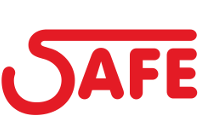The Cape Town-based producer and exporter of table grapes and citrus, SAFE (South African Fruit Exporters), has decided to proactively apply a new international accounting standard which determines that bearer plants (vineyards or orchards) will be accounted for in the same way as property, plants and equipment. SAFE will implement this step during its next financial year end, on 31 October 2017.
Quentin Scott, Chief Financial Officer, SAFE, explains why. “As a growing company, our business involves a large amount of new plantings. We’ve noticed that these plantings’ cost is higher than their market value, which is historic and based on averages. Applying the new accounting standard is a tactical step allowing us to capitalise these costs in line with the benefits to be earned from the bearer plants.”
Published earlier by the International Accounting Sta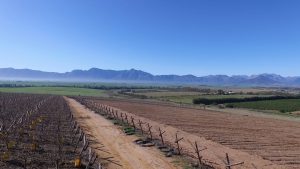 ndards Board (IASB), the new standard stipulates that bearer plants will be moved from IAS (International Accounting Standard) 41 Agriculture, to IAS 16 Property, Plant and Equipment. This effectively changes the financial reporting for bearers such as grape vines, rubber trees and oil palms. Other biological assets, as well as the produce growing on bearer plants, will still be classified under IAS 41 Agriculture.
ndards Board (IASB), the new standard stipulates that bearer plants will be moved from IAS (International Accounting Standard) 41 Agriculture, to IAS 16 Property, Plant and Equipment. This effectively changes the financial reporting for bearers such as grape vines, rubber trees and oil palms. Other biological assets, as well as the produce growing on bearer plants, will still be classified under IAS 41 Agriculture.
“We believe in being proactive in understanding and applying this new standard to our business. We don’t want it to dictate an audit adjustment after our financial year end. Implementing it already in 2017 will enable us to better comprehend its impact and explain this to our stakeholders,” says Scott.
One of the reasons the IASB cites for the new standard – applicable to annual periods starting on or after 1 January 2016 – is that bearer plants are more similar to property, plants and equipment, and their operation more comparable with manufacturing.
Previously bearer plants, as a biological asset related to agricultural activity, were grouped under IAS 41 Agriculture. This meant they had to be measured at fair value (a rational and unbiased estimate of an asset’s potential market price) less costs to sell.
However, bearers “are used solely to grow produce over several periods. At the end of their productive lives they are usually scrapped. Once a bearer plant is mature, apart from bearing produce, its biological transformation is no longer significant in generating future economic benefits. The only significant future economic benefits it generates come from the agricultural produce that it creates,” reads an International Financial Reporting Standards statement.
According to Scott, bearers were also regularly revalued under IAS 41 Agriculture, and there was no amortisation (depreciation or writing-off of the asset) of bearers through a farm’s income statement.
One significant change the new accounting standard brings about, is that before bearer plants reach 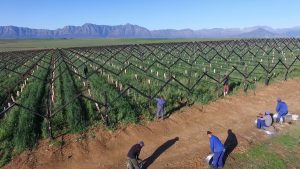 maturity and start producing fruit, they need to be measured at accumulated cost. According to Christine du Toit, Director, CAP Chartered Accountants Incorporated (who is auditing these transactions at SAFE), this accounting treatment is similar to the one used for a self-constructed item of plant and equipment before it is “available for use”. In other words, bearers are now disclosed with other fixed assets.
maturity and start producing fruit, they need to be measured at accumulated cost. According to Christine du Toit, Director, CAP Chartered Accountants Incorporated (who is auditing these transactions at SAFE), this accounting treatment is similar to the one used for a self-constructed item of plant and equipment before it is “available for use”. In other words, bearers are now disclosed with other fixed assets.
When bearer plants are being planted, they are regarded still immature and will be categorised under the “Work in progress” class in Property, plant and equipment. During this time – when bearers’ benefits to the farm are lower than their cost – they will be tested for impairment by identifying impairment indicators, e.g. the farmer is planting a variety of citrus/grapes and then finds out the market no longer requires this specific variety, explains Du Toit.
When bearers reached maturity and start producing fruit for commercial harvest, they are transferred to the “Bearer plant” class in the Property, Plant and Equipment scope. At this point the farm needs to make the important decision whether it will follow the cost model or revaluation model policy. The model, its principles and decisions will then apply across the entire Property, Plant and Equipment class.
“At what stage a bearer plant reaches maturity, is determined by the farm’s management, but it’s not when the bearer is 100% at harvest. We are in a process to determine the applicable point for our vineyards and orchards,” says Scott.
Bringing bearers into the scope of IAS 16 Property, Plant and Equipment, reportedly makes it possible for farmers to value bearer plants at cost, less subsequent depreciation or impairment or at a revalued amount.
“The new standard allows us to choose between a cost or valuation basis. We’ve decided to go with the former, which enables us to capitalise c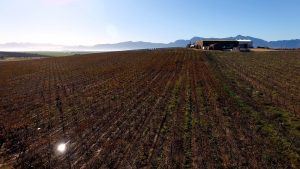 osts for developing or improving our biological assets,” he says.
osts for developing or improving our biological assets,” he says.
When SAFE applies the new standard to its 2017 year end, it will do so retrospectively and restate its October 2016 figures in its October 2017 financial statements. Du Toit explains: “The bearer plants’ fair value as at 1 November 2015 will be deemed SAFE’s cost, and the company will have to determine the useful life from 1 November 2015 for its bearers. Depreciation, based on the deemed cost and useful life, will be higher due to fair value gains recognised before 1 November 2015.”
Scott describes this as the toughest part of the process. “Initially I thought it would be the new standard’s implementation. However, once we’ve completed the application, the accounting treatment is in line with our other assets. The trickiest will be the historic adjustments to our financial statements.”
About CAP Chartered Accountants Inc.
CAP Chartered Accountants Inc. has been in existence for more than 15 years and has an excellent reputation in the market place. CAP provides audit, accounting, taxation, estate planning, management and financial services. CAP has a commitment to quality, integrity and personal service.
For more information on CAP, please visit their website: www.chartered.co.za
Christine du Toit CA (SA) RA – Director at CAP
Christine has more than 21 years of experience in auditing and taxation. Her a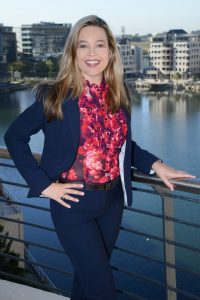 rea of expertise includes agriculture, amongst many other. She holds a Masters’ Degree in Taxation and has presented national tax update courses. Christine a member of the SAICA Southern Region Council.
rea of expertise includes agriculture, amongst many other. She holds a Masters’ Degree in Taxation and has presented national tax update courses. Christine a member of the SAICA Southern Region Council.
